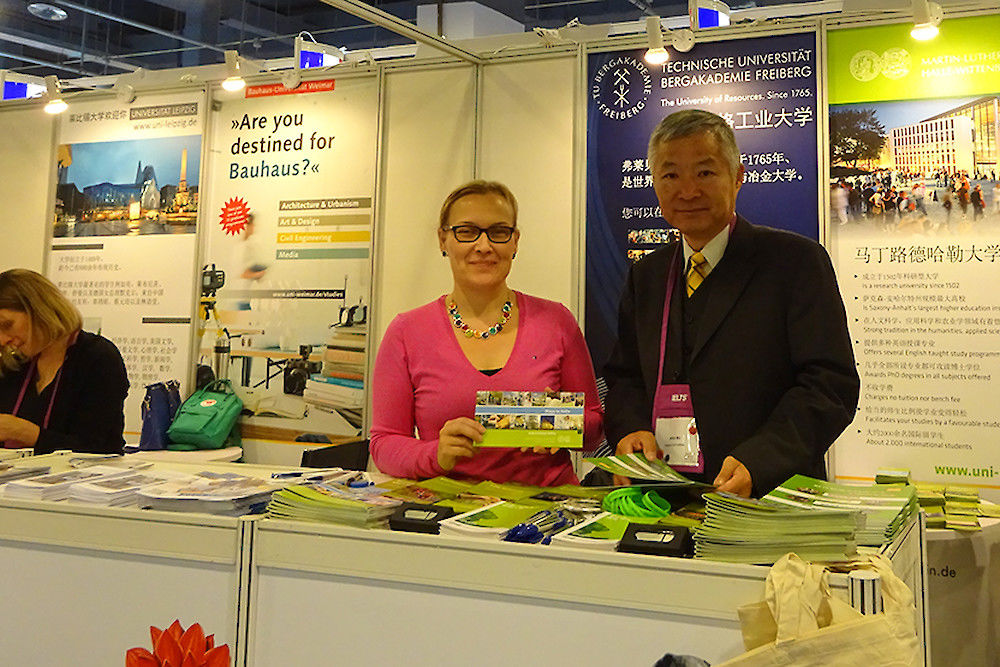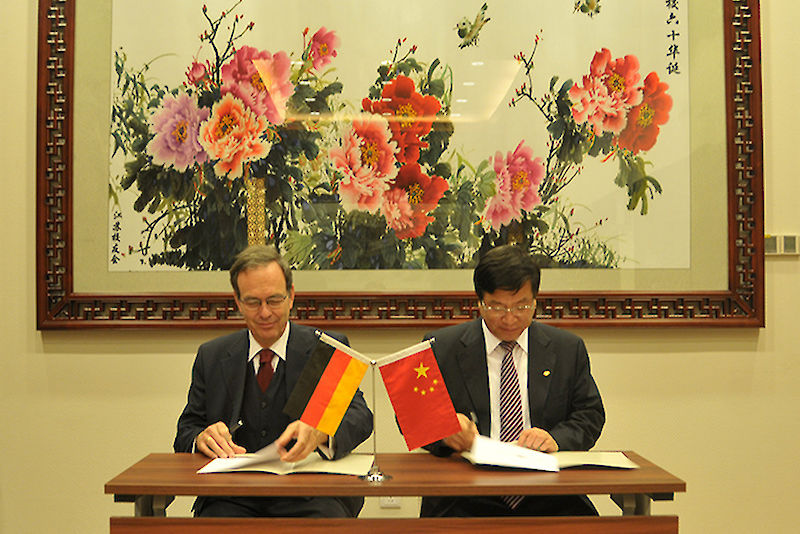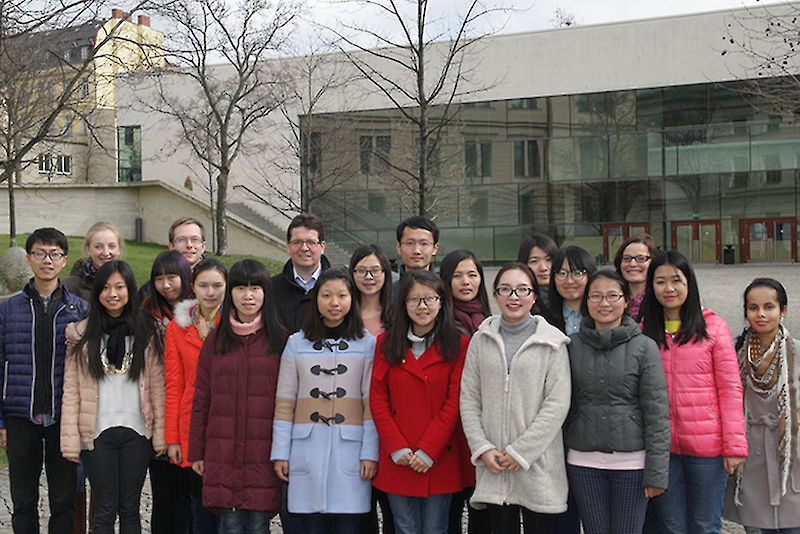University strengthens links with China

Yiying Chen has been teaching at the University of Halle since April. Four days a week she runs language courses for beginners and advanced students. Another course introduces interested students to the basics of Chinese economy, culture and law. Her placement, which is initially for two years, was arranged by the Beijing headquarters of the Confucius Institute, through which China seeks to promote knowledge of its culture and language abroad. “Mrs Chen is mainly here to prepare our students for a stay in China. She offers a valuable addition to our Language Centre programme,” says Dr Manja Hussner, head of the university’s International Office. She successfully applied for the assistance of a Chinese lecturer in cooperation with Prof. Christian Tietje, who for the past nine years has organised successful student exchanges between the Southwest University of Political Science and Law in Chongqing and the Institute of Business Law here in Halle. The Confucius Institute pays her salary. In return, the University of Halle pays for Chen’s accommodation.
Scholars are studying China’s transition to a market economy

Additional help for students wishing to go to Chongqing is available in the form of scholarships from the German Academic Exchange Service (DAAD). In April, the exchange programme that Tietje manages secured half a million euros in funding so that the scheme can continue for another four years. The money is used for scholarships that enable 15 German and 15 Chinese students to take part in the exchange each year. According to Hussner, this type of successful partnership is crucial in further strengthening the university's international profile.
For the past three years Halle has also had a partnership with the renowned University of International Business and Economics (UIBE) in Beijing. This was agreed at university level in July. Economist Professor Ulrich Blum has been cooperating with Professor Xiaohu Feng, a professor of German studies at UIBE, since 2011. In the project “Transformation, translation and integration processes in China”, which is funded by the Alexander von Humboldt Foundation, scholars are studying China’s transition to a market economy. For the past three years, Blum has regularly lectured at UIBE as a visiting professor.
In 2015, three Chinese scholarship holders worked on their PhDs in his Department of Economic Policy and Research. “The country is interested in other economic systems. For example, the writings of German politician and economist Ludwig Erhard are currently being translated into Chinese, and other PhD students are researching what economic lessons China can learn from Germany,” says Blum, who was nominated Excellence Professor of the People’s Republic of China in 2014.
Outstandingly successful: Chinese students in Halle

“We in turn are interested in the competitiveness of the Chinese and in China’s transition to a market economy under the existing technological and cultural conditions.” The university’s Institute of German Studies and the Fraunhofer Institute for the Mechanics of Materials are also involved in the partnership through the Beijing-Humboldt-Forum. The forum provides a platform for cooperation and exchanges on green culture, science and technology. In collaboration with the Fraunhofer Institute for the Mechanics of Materials and UIBE, Blum also has plans in 2016 to set up a centre for material economics that will boost the exchange of information on green technologies between Saxony-Anhalt and China.
In addition to joint research and student exchanges, the Panda Programme is another scheme that is enhancing the university's international profile. Since Halle joined in 2014, it has enabled the university to welcome students from China. The aim is to provide the Chinese students with comprehensive support in their preparation to study in Germany. As part of the Panda Programme, the University of Halle was represented at China’s biggest education fairs and at several German schools in China in 2015. Many Chinese students are interested in applying. “The Chinese are now the third-largest group among our international students. Their academic results are above average, and their drop-out rate is lower than that of other students,” says Hussner.
